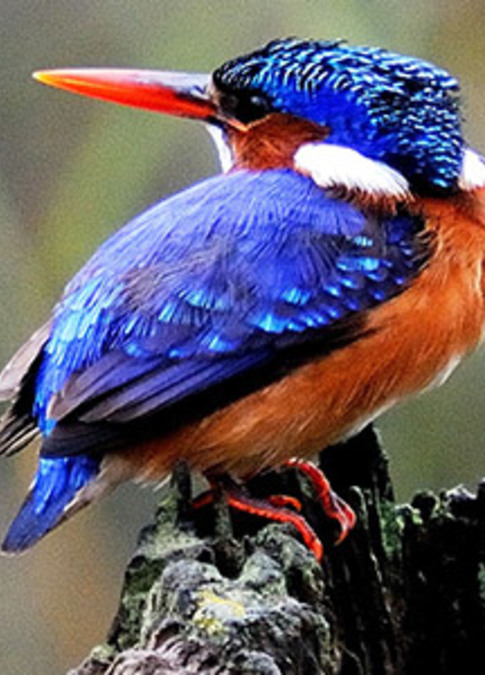Rhino Slaughter
Aged 15 I was riding my bicycle through a quiet, leafy Pretoria suburb when a traffic-cop pulled me over: “You didn’t stop at that stop-sign,” he said. I explained that I was travelling slowly and could see and hear without stopping that there was no traffic coming. He was unimpressed, gave me a tongue-lashing and a £5 fine – four month’s pocket-money in those days. My father was equally unsympathetic: “Society’s rules are there to be obeyed, whether or not you think them foolish”. For four months I went without pocket-money.
How many people today bother to stop at stop streets? Very often they barely slow down. How many put their litter in a bin, let alone bother to re-cycle it? Every day in small ways we show our contempt for the laws of the land. And even if we are caught, a bribe will almost certainly sort out the problem for us, at the same time reinforcing our belief that regulations are meaningless and there to be broken. From the high and mighty preaching economic freedom for the masses to the humblest of shack-dwellers, it is what you can get away with that counts and not what you can do for the good of society at large. We stand up for our rights, but are slow to honour our obligations.
At the same time we have become obsessed with outward show. Designer label clothes with flashy accessories, flat-screen television sets of gigantic proportions with wrap-around sound; enormously expensive cars with every conceivable gadget; jacuzzis and rim-pools - is it any wonder that we have to surround ourselves with security fences and employ guards to provide peace of mind? Is it really so strange that the have-nots peer through the railings and aspire to have at least a modicum of these luxuries? Should we be surprised that there is both corruption and economic and political turmoil in the land?
The combination of greed, contempt for the rule of law and the belief that one can, so to speak, get away with murder, has led to the spate of attacks on rhino. They are, in a sense, a soft target, situated far from centres where the authorities are on call or where concerned citizens might spot the poachers. In addition the majority of country-dwellers are desperately poor and live in relatively closely-knit communities: one’s need is great and one thinks twice before reporting one’s neighbour. Likewise, when it comes to poaching it is the rural poor that take the most risk and receive the least for their trouble. There are so many others to pay off: game-rangers that turn a blind eye, police and customs officials, drivers and helicopter pilots, and of all people, veterinarians that supply the drugs. And these are all people with jobs, with roofs over their heads and food on the table, and yet they are willing to become involved in this despicable trade because they want more, more bling, more with which to boast or to impress their friends and neighbours.
While law-enforcement, beefed-up security and education are essential parts of the battle against poachers, the war will never be won until such time as there is a change in society. Only when those in authority no longer solicit bribes or are involved in tender scams, when civil servants learn that their duty as servants is to serve, when police realize that their duty is to protect, and finally when all of us accept that we will not be remembered for the cars that we drive or the wrist-watches we wear, but for what we have done for our fellow citizens and for the creatures related to us within the web of life on this the only inhabited planet.
This is being written while the number of rhinos killed this year escalates alarmingly, and while I await news regarding the fate of the two rhinos that have so far survived the latest poaching of rhino horn at Kariega Park. This put me in mind of the famous English poet, John Donne, who some 380 years ago wrote: “Any man’s death diminishes me, because I am involved in Mankind, And therefore never send to know for whom the bell tolls; it tolls for thee.” Nearly four centuries later, despite now knowing how intimately connected we are with all living things, I don’t suppose that it ever occurs to any of those involved in this despicable slaughter that the death of any one of these creatures diminishes us all – even the poachers.










